Growing up in my Lola's kitchen in Bataan, the sight of atchara jars lined up on her kitchen counter was as familiar as her morning prayers. Every time I make this pickled green papaya recipe now, the sweet-tangy aroma instantly takes me back to family lunches, where no plate of pritong isda or inihaw na liempo was complete without this colorful condiment.
After years of perfecting my own version, I've finally achieved that perfect balance of flavors that made my Lola's atchara so special: just the right hint of sweetness from the sugar, balanced with the tang of vinegar, and that signature crunch that makes you want to pair it with absolutely everything.
I discovered that the secret lies not just in the ingredients, but in the little details, like letting the papaya properly drain (patience is key, mga kapatid!) and getting that ideal 1½ cups vinegar to 1 cup sugar ratio that creates magic in every jar. This family atchara recipe has become my potluck party superhero, with friends always asking "Ikaw ba gumawa nito?" and begging me to bring it to every gathering.
Today, I'm sharing our treasured family recipe so you can create your own atchara memories. Once you master this atchara recipe, your Filipino meals will never be the same again.
Jump to:
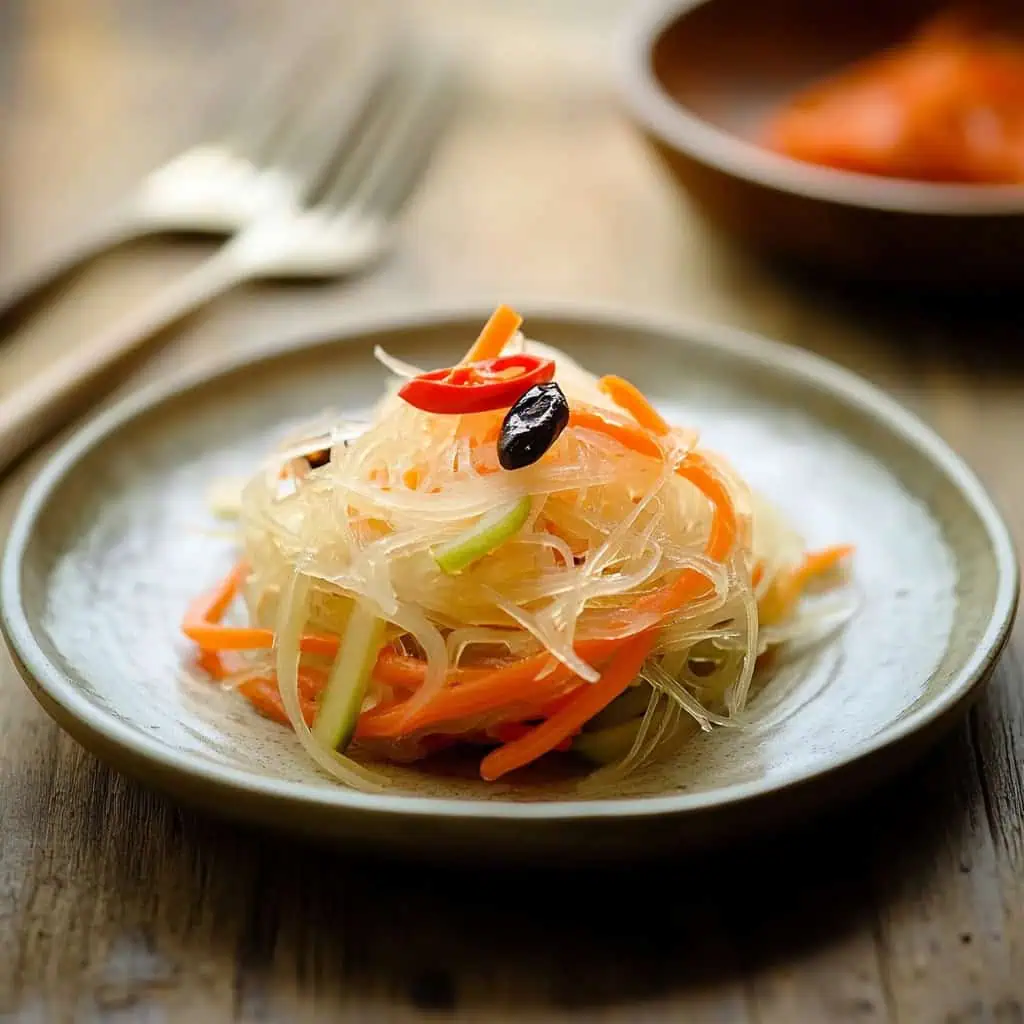
Why You'll Love This Recipe
- Perfect Balance: Experience the ideal harmony of tangy and sweet flavors
- Versatile Condiment: Pairs beautifully with any Filipino main dish
- Make-Ahead Friendly: Gets better with time in the refrigerator
- Budget-Friendly: Uses simple, affordable ingredients
- Authentically Filipino: A treasured recipe passed down through generations
Ingredients
The ingredients in this atchara recipe create a perfect balance of flavors and textures. Green papaya forms the crisp base with its neutral flavor that absorbs the pickling solution beautifully. Carrots add natural sweetness and vibrant color, while bell peppers contribute both crunch and visual appeal.
Ginger and garlic infuse the mixture with aromatic depth, balancing the sweetness from sugar and raisins. The white vinegar provides essential acidity for preservation and that signature tangy flavor, while peppercorns add subtle warmth and complexity.
This combination creates a condiment that brightens rich dishes with its sweet-sour profile while maintaining a refreshing crunch that cuts through fatty foods—exactly what makes atchara the perfect companion to traditional Filipino meals.
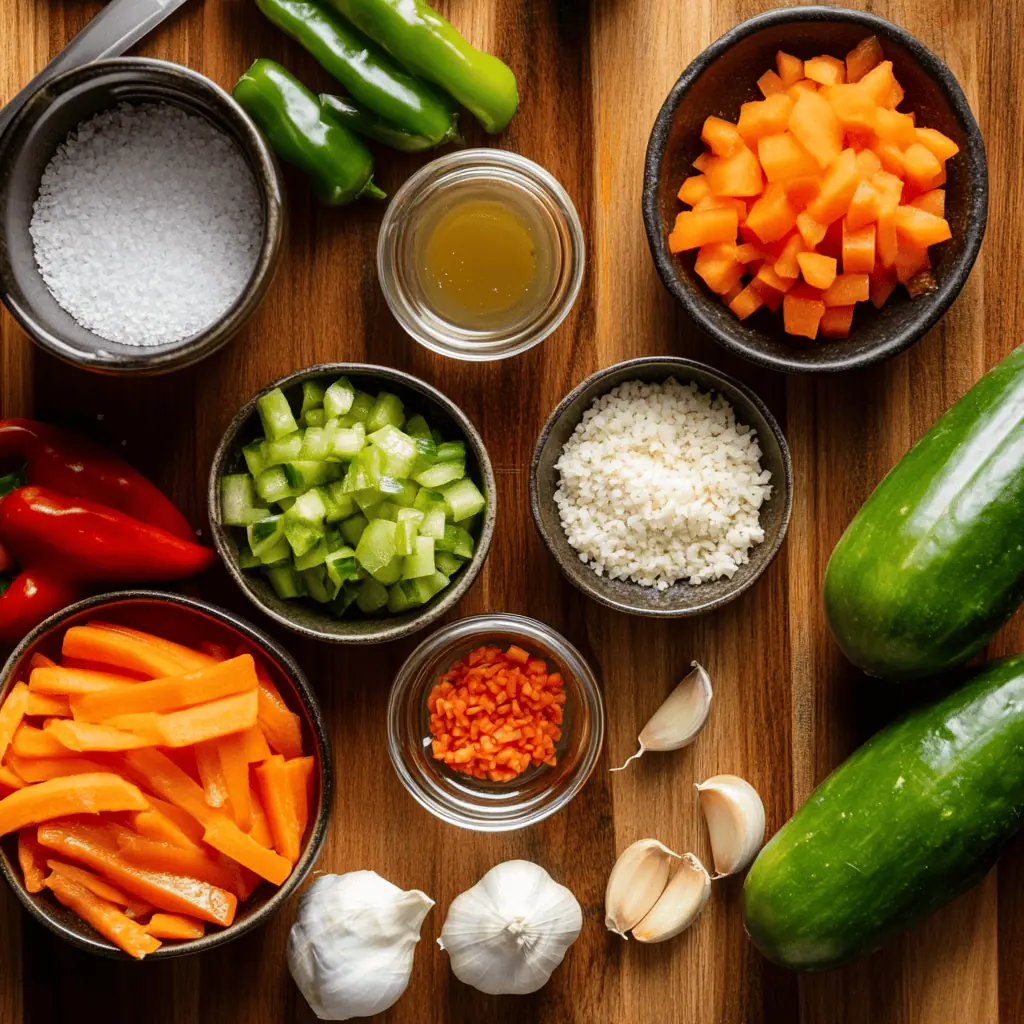
For the Vegetables:
- 1 large unripe green papaya, peeled, seeded and shredded
- 1 large carrot, peeled and shredded
- 1 small red bell pepper, seeded and julienned
- 1 small green bell pepper, seeded and julienned
- 1 small onion, peeled and sliced thinly
- 1 thumb-size ginger, peeled and julienned
- 3-4 cloves garlic, peeled and crushed
- ¼ cup raisins
For the Pickling Solution:
- 1½ cups white vinegar
- 1 cup sugar
- 2 tablespoons + 1 teaspoon salt
- 1 tablespoon whole peppercorns
Equipment Needed
- Large Bowl: Used for salting the papaya and mixing the vegetables with the pickling solution. A spacious bowl allows for proper tossing without spillage.
- Cheesecloth: Essential for squeezing excess moisture from the salted papaya, ensuring your atchara maintains that signature crunch.
- Sharp Knife: Needed for precise julienning of vegetables. A sharp knife makes thin, even cuts for uniform pickling.
- Grater: Used for shredding the papaya and carrots into consistent pieces for even pickling.
- Medium Saucepan: For properly heating the pickling solution and allowing sugar to fully dissolve.
- Glass Jars: For storing the finished atchara. Glass is non-reactive and preserves flavors better than plastic containers.
- Measuring Cups and Spoons: Ensures accurate ingredient proportions for the perfect balance of sweet and tangy flavors.

How To Make
- Begin by preparing the papaya. Combine shredded green papaya with 2 tablespoons salt in a large bowl. Let it sit for 1 hour until liquid releases. Squeeze firmly in cheesecloth to remove excess moisture - this crucial step ensures crispy atchara.
- Meanwhile, prepare other vegetables: shred carrots, julienne bell peppers, thinly slice onions, julienne ginger, and crush garlic. Set aside along with raisins.
- Make the pickling solution in a saucepan over medium heat (180°C/350°F). Combine white vinegar, sugar, remaining 1 teaspoon salt, and whole peppercorns. Simmer for 3-5 minutes, stirring until sugar dissolves. Add ginger, onions, garlic, and peppercorns, cooking for an additional 2-3 minutes.
- In a large bowl, combine the drained papaya, bell peppers, carrots, and raisins. Pour the hot pickling solution over the vegetables and toss gently to combine. Transfer to sterilized jars and let cool completely before sealing.
- Refrigerate for 1-2 days before serving to allow flavors to develop. For best results, consume within 2 weeks. Serve chilled alongside fried fish or grilled meats.

Tips from Lola's Kitchen
- Properly prep your papaya: Always choose firm, unripe green papayas. The firmer, the better for maintaining crunch.
- Salt with purpose: The salting process is non-negotiable - it removes moisture that would otherwise make your atchara soggy.
- Slice consistently: Keep your vegetable cuts uniform in size for even pickling and better presentation.
- Sterilize jars properly: Boil glass jars and lids for 10 minutes to ensure longer shelf life for your atchara.
- Give it time: Patience is rewarded! The flavor improves after at least 24 hours of refrigeration.
- Perfect your ratio: The 1½:1 vinegar-to-sugar ratio is the secret to balanced flavor - measure carefully.
- Test for doneness: The pickling solution is ready when sugar is completely dissolved and the mixture is just starting to simmer.
- Mind your heat: Keep the pickling solution at a gentle simmer, never a rolling boil, to preserve flavors.
Substitutions
- Green Papaya: Young chayote or green mango can work as alternatives. They won't have the exact same texture but offer similar crunch.
- White Vinegar: Apple cider vinegar or rice vinegar can be used for different flavor profiles. Cider vinegar adds fruitiness, while rice vinegar offers a milder tang.
- Bell Peppers: Additional carrots or cucumber can substitute if bell peppers aren't available.
- Raisins: Dried cranberries add a different sweetness, or you can omit them entirely.
- Sugar: Coconut sugar works well for a more caramel-like flavor, though it will darken the pickling solution.
- Whole Peppercorns: Crushed red pepper flakes can be used for a spicier version (use ½ teaspoon instead).
Troubleshooting
- Too Sour: If your atchara is overly tangy, add more sugar, 1 tablespoon at a time, and let it sit an additional day for flavors to meld.
- Too Sweet: Add more vinegar, 1 tablespoon at a time, to increase acidity and balance sweetness.
- Vegetables Too Soft: You likely over-salted or left the papaya salting too long. For your next batch, reduce initial salting time to 30-45 minutes.
- Not Crispy Enough: The papaya wasn't drained properly. Make sure to squeeze out all excess moisture through cheesecloth.
- Cloudy Brine: This is normal after a few days as spices infuse the liquid. If it's very cloudy immediately, your jars may not have been fully sterilized.
- Darkened Vegetables: Normal oxidation over time. To minimize, ensure vegetables are fully submerged in the pickling solution.
Storage & Reheating
- Store in airtight glass containers in the refrigerator.
- Best consumed within 2 weeks, though it remains safe to eat for up to 1 month when properly refrigerated.
- The flavor profile will change over time, becoming more intense.
- Do not freeze atchara as it will destroy the crisp texture upon thawing.
- No reheating required - atchara is always served cold as a condiment.
- If the pickling solution appears too thick after refrigeration, this is normal due to sugar concentration.
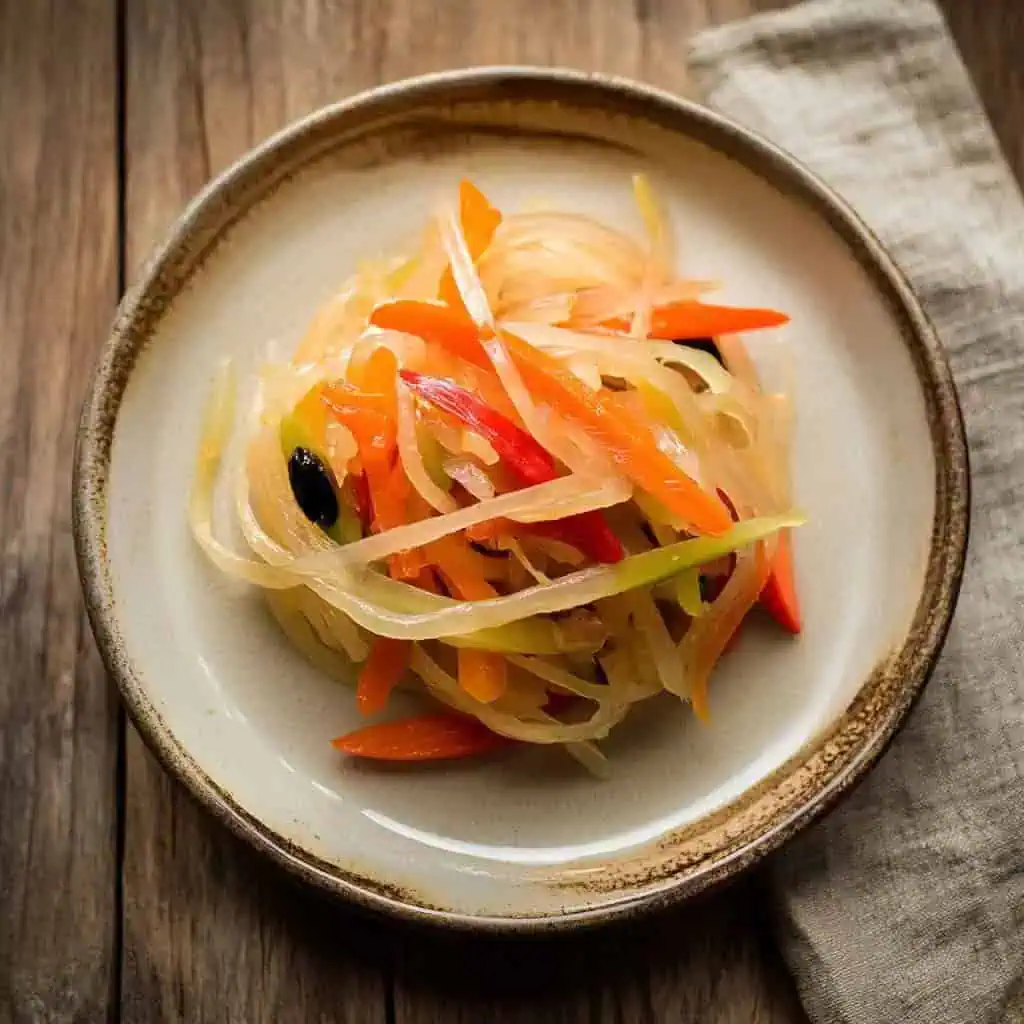
FAQ
How long does atchara last?
Properly stored in the refrigerator in sterilized jars, it lasts up to 2 weeks with optimal flavor and up to 1 month for food safety.
Can I reduce the sugar?
Yes, but it affects preservation and flavor balance. Reduce by maximum 25% and consume within 10 days.
Why salt the papaya first?
Salting removes excess moisture from the papaya, ensuring the vegetables stay crisp after pickling instead of becoming soggy.
Can I reuse the pickling solution?
Not recommended for food safety reasons. Each batch should have fresh pickling solution.
Why did my atchara turn out soggy?
Most likely the papaya wasn't drained thoroughly enough. The salting and draining process is crucial for texture.
Is homemade atchara safe to can for long-term storage?
Traditional water bath canning isn't recommended for this recipe as written. For long-term preservation, you would need to modify the recipe for proper acidification levels.
What dishes pair best with atchara?
Atchara pairs wonderfully with fried fish (pritong isda), grilled pork belly (inihaw na liempo), Filipino breakfast dishes (silog meals), and crispy fried chicken.
Can I make a spicy version?
Absolutely! Add 2-3 Thai chilies or bird's eye chilies to the pickling solution for a spicy kick.
Related
Looking for other recipes like this? Try these:
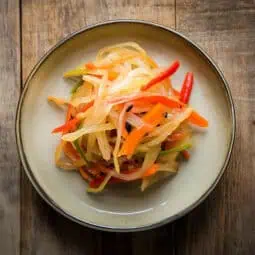
Authentic Filipino Atchara (Achara) Recipe
Equipment
- Large Bowl (Malaking Mangkok) For salting papaya
- Cheesecloth (Kata) For squeezing excess moisture
- Sharp knife [Matalas na kutsilyo] For julienning vegetables
- Grater (kudkuran) For shredding papaya and carrots
- Medium Saucepan (Kaserola) For preparing pickling solution
- Glass Jars (Garapon) For storing finished atchara
- Measuring cups and spoons (Panukat) For precise measurements
Ingredients
For the Vegetables:
- 1 large unripe green papaya hilaw na papaya, peeled, seeded and shredded
- 1 large carrot karot, peeled and shredded
- 1 small red bell pepper pulang siling pangsigang, seeded and julienned
- 1 small green bell pepper berdeng siling pangsigang, seeded and julienned
- 1 small onion sibuyas, peeled and sliced thinly
- 1 thumb-size ginger luya, peeled and julienned
- 3-4 cloves garlic bawang, peeled and crushed
- ¼ cup raisins pasas
For the Pickling Solution:
- 1½ cups white vinegar suka
- 1 cup sugar asukal
- 2 tablespoons + 1 teaspoon salt asin
- 1 tablespoon whole peppercorns paminta
Instructions
- Begin by preparing the papaya. Combine shredded green papaya with 2 tablespoons salt (asin) in a large bowl. Let it sit for 1 hour until liquid releases. Squeeze firmly in cheesecloth to remove excess moisture - this crucial step ensures crispy atchara.
- Meanwhile, prepare other vegetables: shred carrots, julienne bell peppers (siling pangsigang), thinly slice onions (sibuyas), julienne ginger (luya), and crush garlic (bawang). Set aside along with raisins (pasas).
- Make the pickling solution in a saucepan over medium heat (180°C/350°F). Combine white vinegar (suka), sugar (asukal), remaining 1 teaspoon salt, and whole peppercorns (paminta). Simmer for 3-5 minutes, stirring until sugar dissolves. Add ginger, onions, garlic, and peppercorns, cooking for an additional 2-3 minutes.
- In a large bowl, combine the drained papaya, bell peppers, carrots, and raisins. Pour the hot pickling solution over the vegetables and toss gently to combine. Transfer to sterilized jars (garapon) and let cool completely before sealing.
- Refrigerate for 1-2 days before serving to allow flavors to develop. For best results, consume within 2 weeks. Serve chilled alongside fried fish (pritong isda) or grilled meats (inihaw).
Tips from Lola's Kitchen
- Use only fresh, firm green papaya for the best texture
- Sterilize jars by boiling for 10 minutes before use
- The thinner you slice the vegetables, the better they absorb the pickling solution
- Don't skip the salting step - it ensures crispy vegetables
- Wait at least 24 hours before eating for best flavor development
Nutrition
The Story Behind Filipino Atchara
Dating back to the Spanish colonial era, atchara (also spelled achara or atsara) emerged as the Filipino adaptation of Western escabeche, a preservation method brought by Spanish settlers in the 16th century. While European escabeche typically featured pickled fish or meat, resourceful Filipino cooks transformed this technique using locally abundant green papaya, creating what would become one of the Philippines' most cherished condiments.
The name "atchara" itself has fascinating roots, believed to derive from the Indian word "achar," meaning pickle or relish. This etymology hints at the extensive trade networks that influenced Filipino cuisine, as merchants from India and Southeast Asia frequented Philippine shores long before Spanish colonization. The use of pickling as a preservation method was particularly crucial in tropical climates where fresh produce would quickly spoil without refrigeration.
Today, every region in the Philippines has its own atchara variation, though green papaya remains the star ingredient. In Batangas, you might find it more garlicky, while Pampanga versions often lean sweeter. Some families add unique touches like julienned singkamas (jicama) or labanos (radish), proving how this humble condiment has evolved into countless beloved family recipes. What remains constant is its essential role on the Filipino table, where its crisp, sweet-sour profile perfectly complements the rich flavors of inihaw (grilled dishes), pritong isda (fried fish), and the hearty silog breakfasts that define Filipino cuisine.
Modern Filipino home cooks continue to prepare atchara not just as a condiment, but as a way to preserve culinary heritage. While commercial versions are widely available, nothing quite matches the satisfaction of opening a jar of homemade atchara, its colorful vegetables suspended in a perfectly balanced brine, ready to elevate any meal with its distinctive crunch and flavor. This enduring popularity speaks to how atchara has transcended its practical origins as a preservation method to become an integral part of Filipino food culture, cherished across generations.
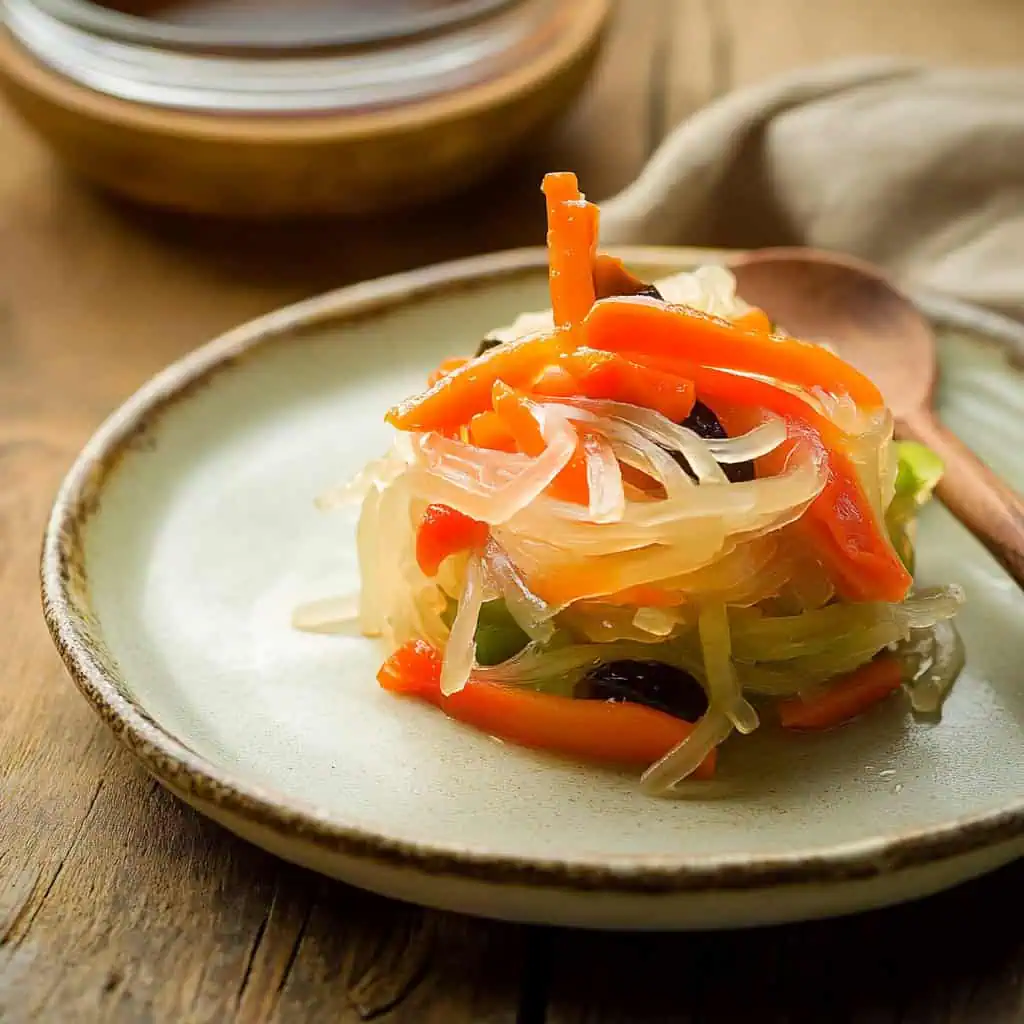

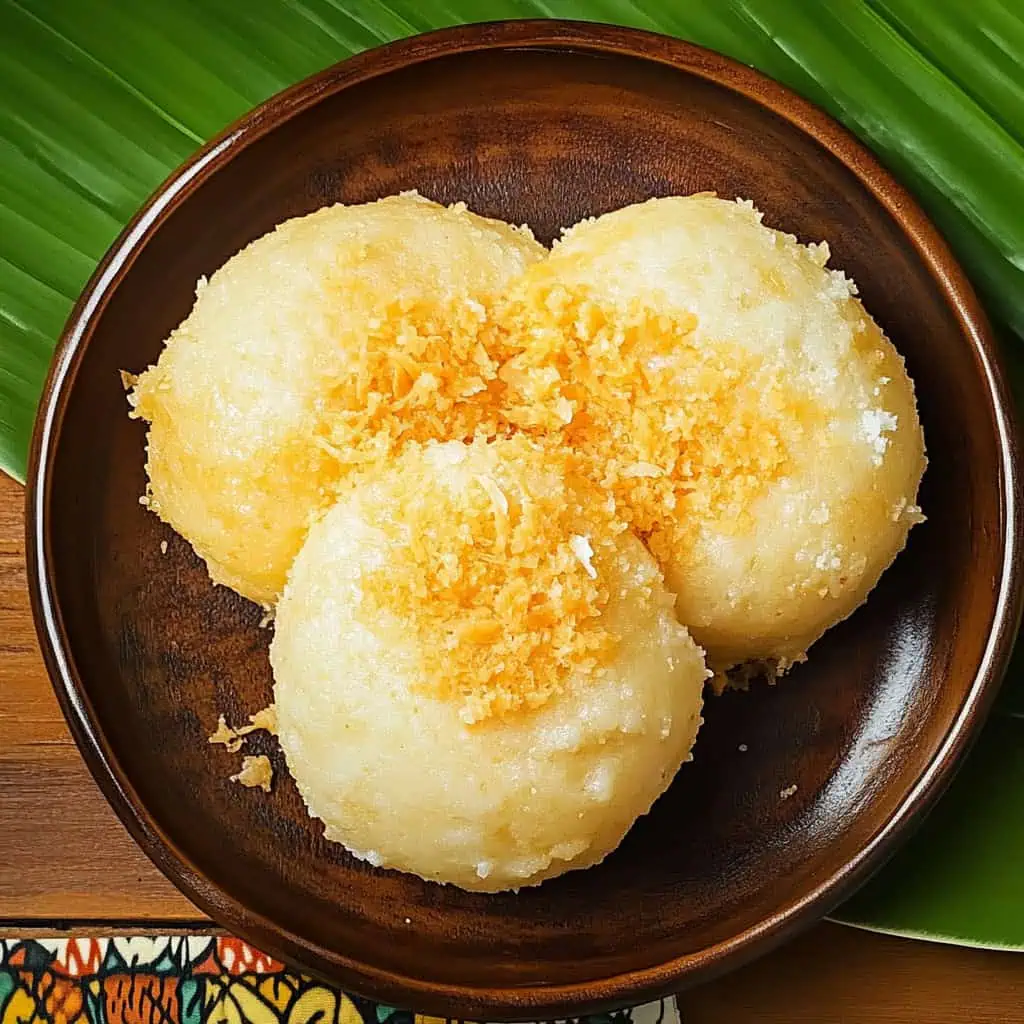
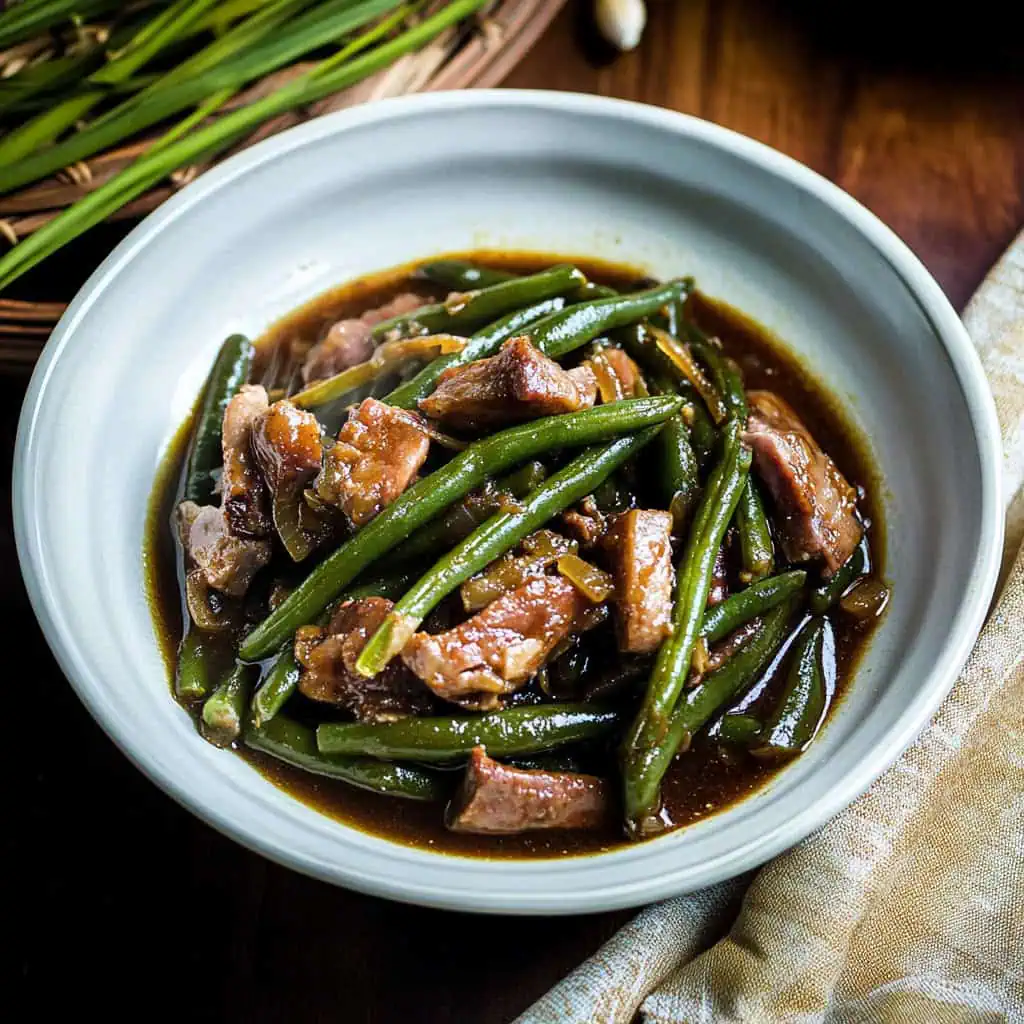
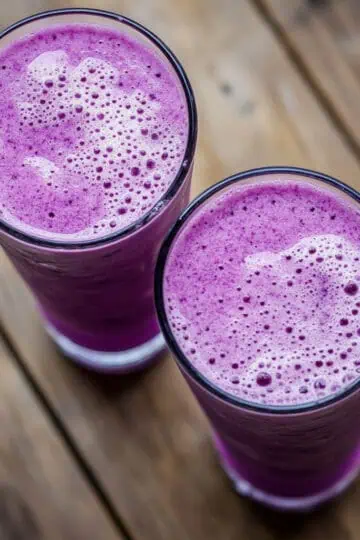
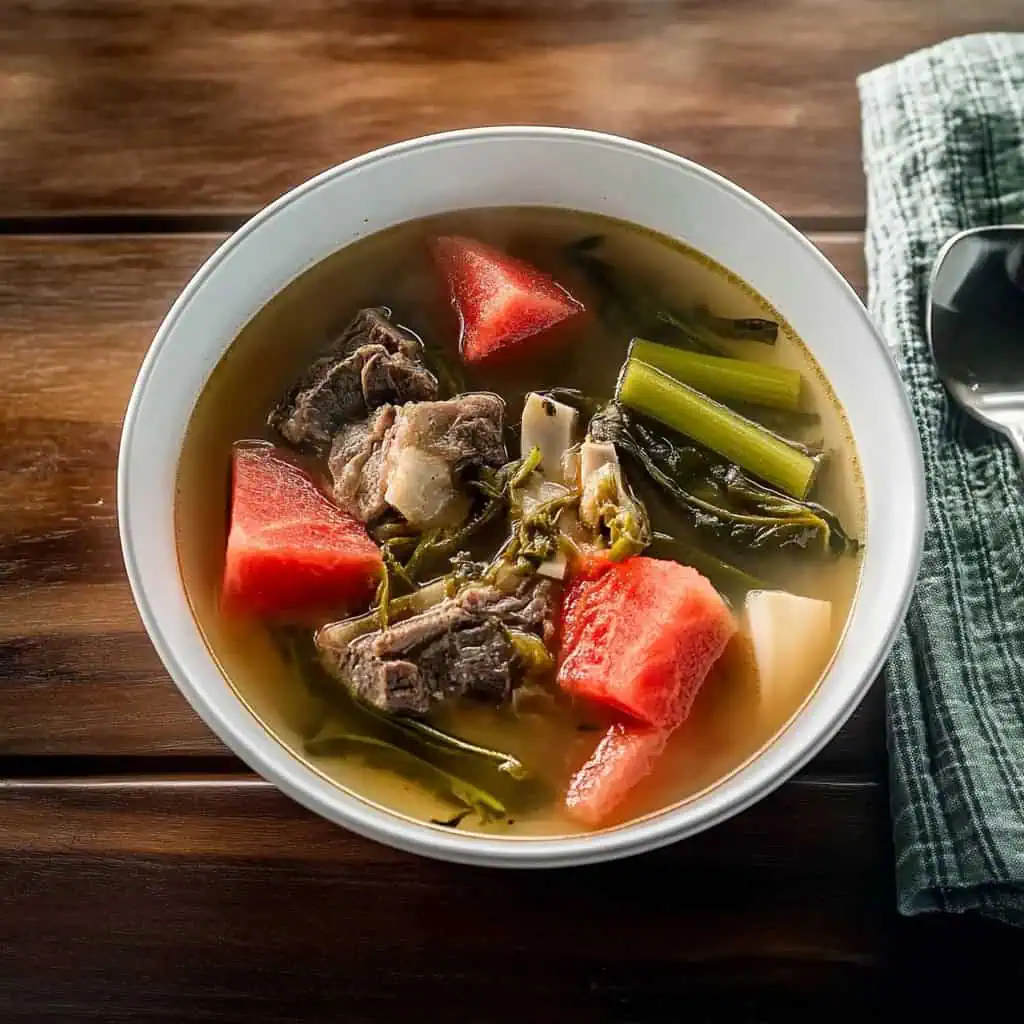
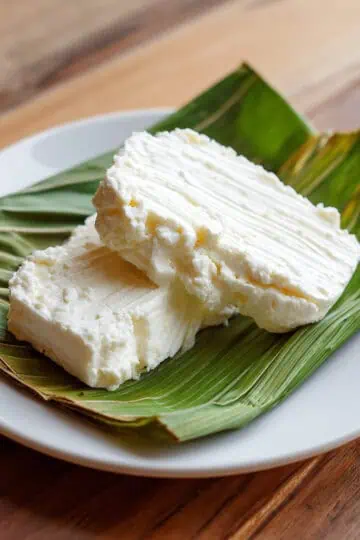
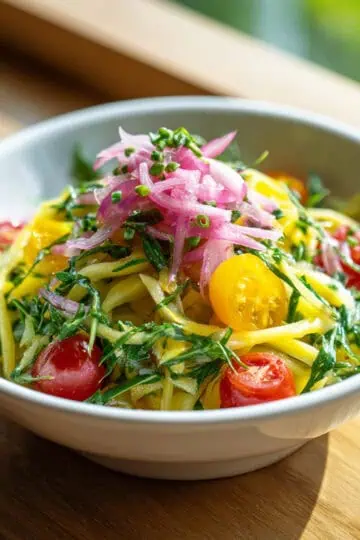
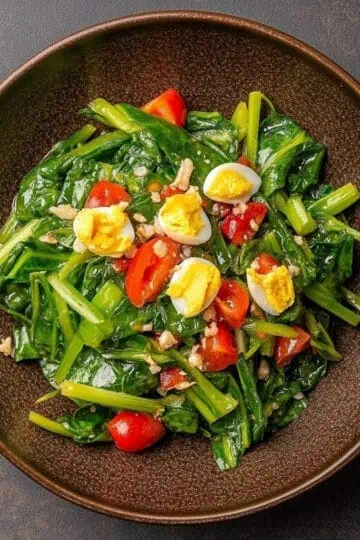

Meredith says
I'm going to make an adjustment and water bath can this. 😀